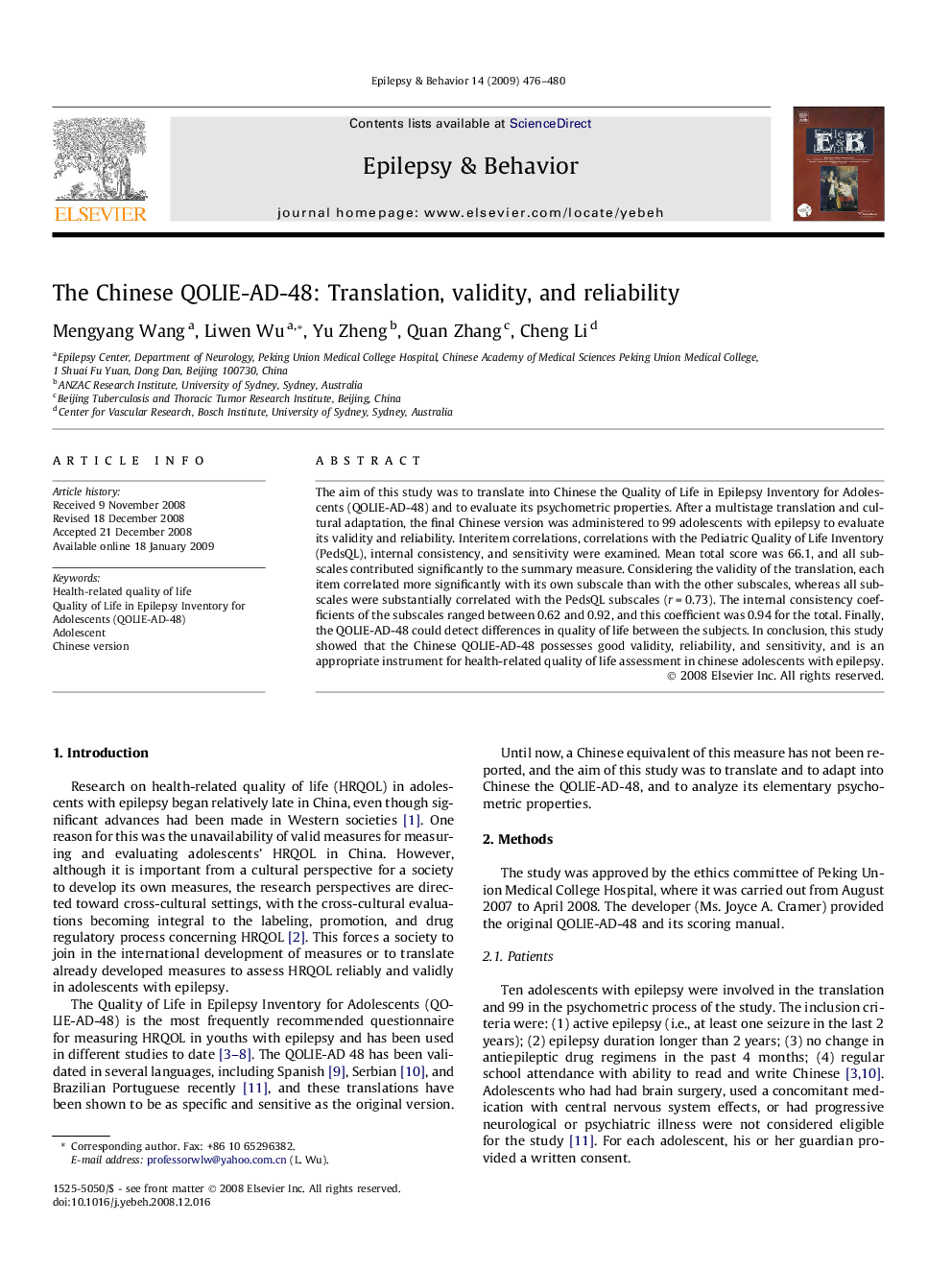| Article ID | Journal | Published Year | Pages | File Type |
|---|---|---|---|---|
| 3050479 | Epilepsy & Behavior | 2009 | 5 Pages |
The aim of this study was to translate into Chinese the Quality of Life in Epilepsy Inventory for Adolescents (QOLIE-AD-48) and to evaluate its psychometric properties. After a multistage translation and cultural adaptation, the final Chinese version was administered to 99 adolescents with epilepsy to evaluate its validity and reliability. Interitem correlations, correlations with the Pediatric Quality of Life Inventory (PedsQL), internal consistency, and sensitivity were examined. Mean total score was 66.1, and all subscales contributed significantly to the summary measure. Considering the validity of the translation, each item correlated more significantly with its own subscale than with the other subscales, whereas all subscales were substantially correlated with the PedsQL subscales (r = 0.73). The internal consistency coefficients of the subscales ranged between 0.62 and 0.92, and this coefficient was 0.94 for the total. Finally, the QOLIE-AD-48 could detect differences in quality of life between the subjects. In conclusion, this study showed that the Chinese QOLIE-AD-48 possesses good validity, reliability, and sensitivity, and is an appropriate instrument for health-related quality of life assessment in chinese adolescents with epilepsy.
